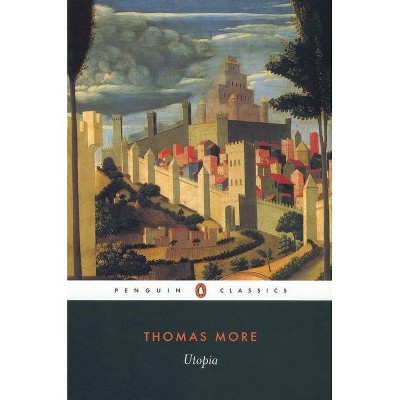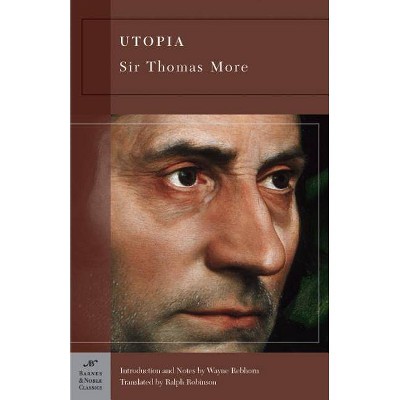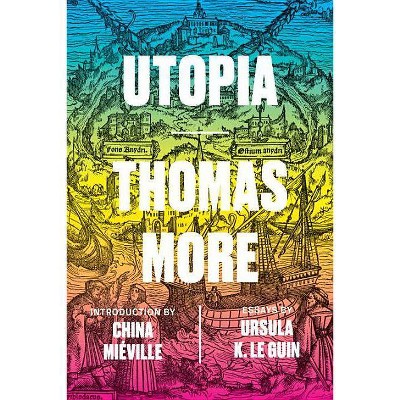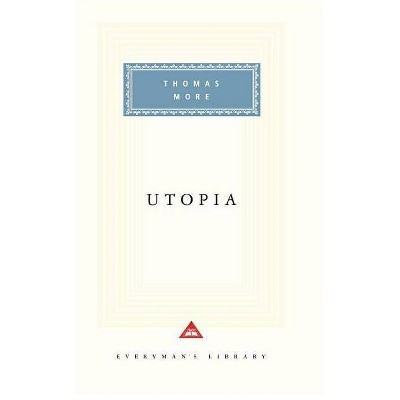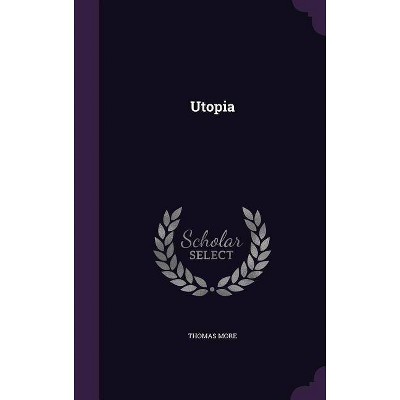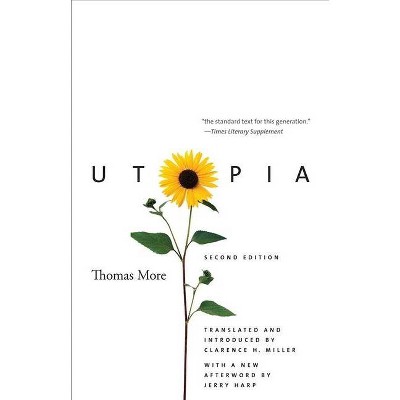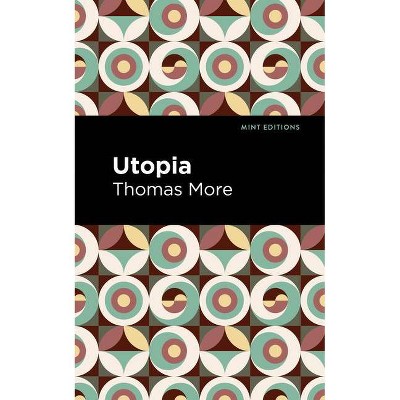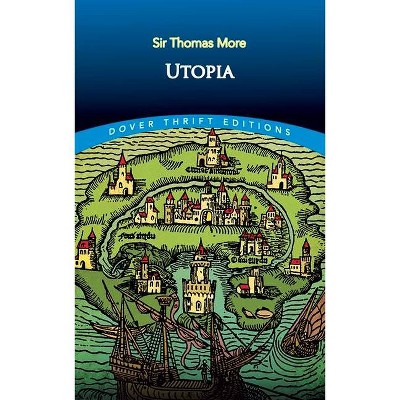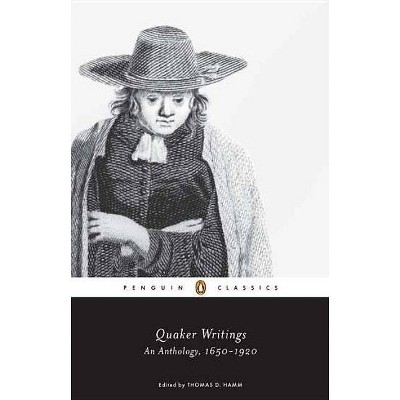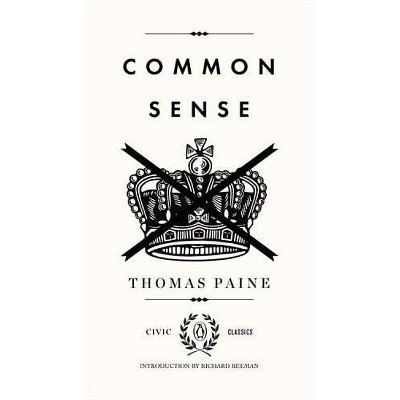Utopia - (Penguin Classics) by Thomas More (Paperback)
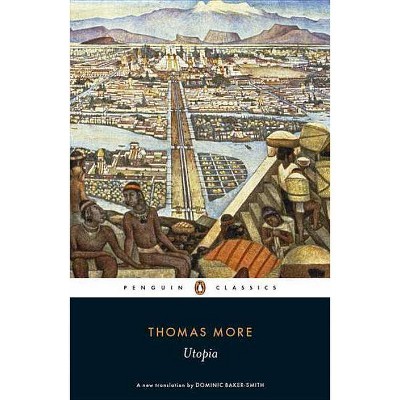
Similar Products
Products of same category from the store
AllProduct info
<p/><br></br><p><b> About the Book </b></p></br></br>"In his most famous and controversial book, Utopia, Thomas More imagines a perfect island nation where thousands live in peace and harmony, men and women are both educated, and all property is communal. Through dialogue and correspondence between the protagonist Raphael Hythloday and his friends and contemporaries, More explores the theories behind war, political disagreements, social quarrels, and wealth distribution and imagines the day-to-day lives of those citizens enjoying freedom from fear, oppression, violence, and suffering. Originally written in Latin, this vision of an ideal world is also a scathing satire of Europe in the sixteenth century and has been hugely influential since publication, shaping utopian fiction even today."--Publisher's website.<p/><br></br><p><b> Book Synopsis </b></p></br></br><b>A major new translation of Thomas More's popular work of philosophical fiction</b> <p/>In his most famous and controversial book, <i>Utopia</i>, Thomas More imagines a perfect island nation where thousands live in peace and harmony, men and women are both educated, and all property is communal. Through dialogue and correspondence between the protagonist Raphael Hythloday and his friends and contemporaries, More explores the theories behind war, political disagreements, social quarrels, and wealth distribution and imagines the day-to-day lives of those citizens enjoying freedom from fear, oppression, violence, and suffering. Originally written in Latin, this vision of an ideal world is also a scathing satire of Europe in the sixteenth century and has been hugely influential since publication, shaping utopian fiction even today. <p/>For more than seventy years, Penguin has been the leading publisher of classic literature in the English-speaking world. With more than 1,700 titles, Penguin Classics represents a global bookshelf of the best works throughout history and across genres and disciplines. Readers trust the series to provide authoritative texts enhanced by introductions and notes by distinguished scholars and contemporary authors, as well as up-to-date translations by award-winning translators.<p/><br></br><p><b> About the Author </b></p></br></br><b>Thomas More </b>was born a Londoner in 1477 or 1478. He served as a page, then studied at Oxford, was called to the bar and subsequently had a highly successful career in the City. Sent on an embassy to Flanders in 1515, he began Utopia there and completed it back in London. From 1528 he actively resisted innovation in religious matters and clashed with Henry VIII over his break with the Church. In July 1535, after he refused to accept the royal supremacy over the church, he was tried as a traitor at Westminster Hall and beheaded on Tower Hill. He was canonized by Pope Pius XI in 1935. <p/><b>Dominic Baker-Smith</b> has been a Fellow of Fitzwilliam College, Cambridge; Professor of English at University College, Cardiff; and is now Emeritus Professor at the University of Amsterdam. In addition to various publications on English and Neo-Latin literature he is the author of More's 'Utopia' (1991, 2000) and has edited three volumes in the Toronto Collected Works of Erasmus. He has served as Chairman of the Society for Renaissance Studies and was appointed OBE in 1999.
Price History
Price Archive shows prices from various stores, lets you see history and find the cheapest. There is no actual sale on the website. For all support, inquiry and suggestion messagescommunication@pricearchive.us
